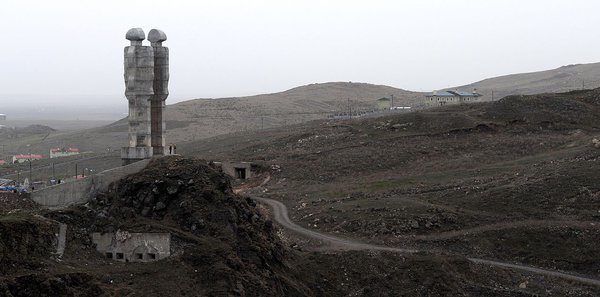Turkey's weekend of madness - the end of the beginning?
Is this the beginning of the end for Turkey's President Recep Tayyip Erdogan? Or is it the end of the beginning of a period of eternal unrest in a country whose government is trying to shift the balance towards Erdogan's political Islamist camp and further away from the Armed Forces, who see themselves as the guardian of Turkey's secular State?

The players: Erdogan and the military...
Erdogan's game of arm wrestling with the military began as soon as he became Prime Minister as leader of his AKP (Justice and Development) Party in 2003 (a position he held until 2014, when he became President). This game reached its climax with the Ergenekon trials in 2013, in which 275 people were accused of plotting to remove Erdogan a decade earlier after he became Prime Minister. In the Ergenekon trials, 275 people were arrested and accused of plotting against Erdogan, among them senior military officers, lawyers, academics and journalists. Erdogan took advantage of the situation to promote junior officers in an attempt to control the military, which he knew would oppose his political Islamization of Turkey.
...and the Gülenists
The Ergenekon trials were also a reaction to the corruption investigations which were taking place in Turkey, probing allegations of corruption in the heart of Erdogan's AKP, and Erdogan blamed the Gülen movement for initiating these. This is a religious and social movement led by the Islamic theologian Fethullah Gülen, who now lives in the United States of America, after the Gülenist movement was classified a national security threat.
It is the same Gülenist movement, a pacifist, modern social model of Islam, which is now accused by Erdogan and his supporters of having been behind the attempted coup d'état on Friday. However, Fethullah Gülen and his United States hosts have denied any involvement in the coup.
Whether or not the coup came from outside or inside Turkey, its failure allowed Erdogan a further chance to crack down on the military, whose power had been growing in recent years. In fact, Erdogan called the coup "a gift from God... because this will be a reason to cleanse our army".
The result
The result of the coup is 265 people dead, 1,440 injured and around 6,000 arrests, including 50 high-ranking military officers and 136 judges, suspected of having links to the Gülenist movement. A further 2,700 judges have been sacked. Among the military officers arrested is General Ozhan Ozbakir, commander of the Denizli garrison and the Eleventh Commando Brigade, General Erdal Ozturk, commander of the Third Army, General Adem Huduti, commander of the Second Army; and Akin Ozturk, the former Chief of Air Staff.
Internal causes
Behind the coup was the growing unrest among Erdogan's opponents at his plans to transform the country from the secular state it has been since Mustafa Kemal Ataturk established the Republic of Turkey in 1923, and also the spill-over of violence from Syria, in which Turkey is heavily committed. Fighting with the Kurdish PKK has flared up again, South-East Turkey ressembles a war zone and Islamic State has started hitting targets inside Turkey.
As this has been going on, Erdogan has become more and more autocratic and appears as the antithesis to democracy. These are the internal causes of the 2016 coup. While Erdogan remains, they will not go away. This was a twentieth-century coup in the twenty-first century. The next might not make the same mistake.
External causes
External causes might be the reimplementation of the Balkan Stream, the improving relations between Turkey and Russia as a multilateral regional force begins to form, challenging the unipolar hegemony of the USA in the region. This move includes the important step of declaring the Al-Nusra front in Syria a terrorist organization. Sooner or later, the USA's smiling at the notion of a greater Curdistan (bound to throw the region into chaos) was going to collide with Turkey. While Erdogan remains, these potential causes of external maneuverings will not disappear either.
Conclusion, this might not yet be the beginning of the end for Erdogan but it is certainly the end of the beginning of the arm wrestling bout which will eventually see him leave power under a cloud.
Photo: The Monument to Humanity, remembering the victims of the Turkish Genocide of the Armenians in 1915, was destroyed by Erdogan in 2011.
Timothy Bancroft-Hinchey
Pravda.Ru
Twitter: @TimothyBHinchey

*Timothy Bancroft-Hinchey has worked as a correspondent, journalist, deputy editor, editor, chief editor, director, project manager, executive director, partner and owner of printed and online daily, weekly, monthly and yearly publications, TV stations and media groups printed, aired and distributed in Angola, Brazil, Cape Verde, East Timor, Guinea-Bissau, Portugal, Mozambique and São Tomé and Principe Isles; the Russian Foreign Ministry publication Dialog and the Cuban Foreign Ministry Official Publications. He has spent the last two decades in humanitarian projects, connecting communities, working to document and catalog disappearing languages, cultures, traditions, working to network with the LGBT communities helping to set up shelters for abused or frightened victims and as Media Partner with UN Women, working to foster the UN Women project to fight against gender violence and to strive for an end to sexism, racism and homophobia. A Vegan, he is also a Media Partner of Humane Society International, fighting for animal rights. He is Director and Chief Editor of the Portuguese version of Pravda.Ru.
Subscribe to Pravda.Ru Telegram channel, Facebook, RSS!


